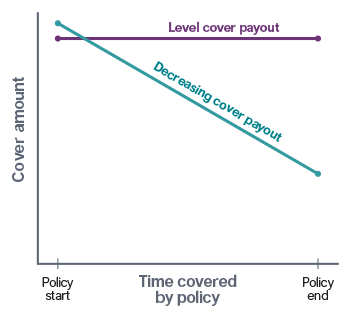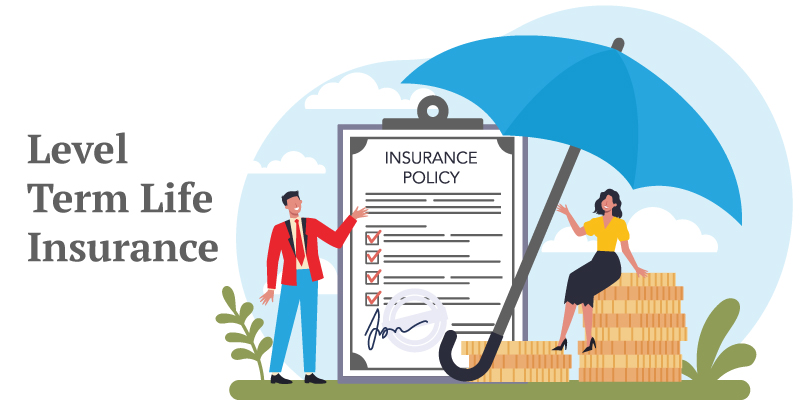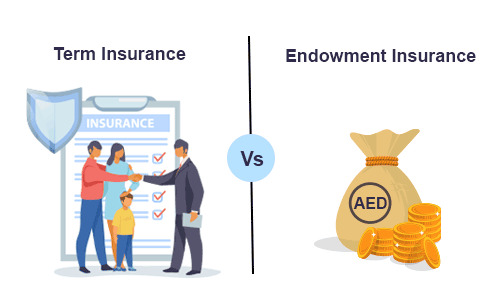A Comprehensive Guide to Critical Illness Riders
In the rapidly evolving insurance landscape of the UAE, life insurance has emerged as a highly sought-after product. Among the numerous benefits that it brings, the availability of riders, particularly the critical illness rider, stands out.
The critical illness rider is a type of additional coverage that can be attached to a primary life insurance policy. It provides a lump sum payout in case the policyholder is diagnosed with a critical illness specified in the policy documents. While these riders offer high sum assured and opportunities to enhance policy coverage, it's worth noting that availing them requires an additional premium.
Best Term Insurance Plans in UAE
Some of the best Term Insurance quotes in UAE & Dubai are:





Table of Content
If you are planning to expand your life insurance plan or are just curious about the specifics, let’s delve deeper into the nuances of critical illness riders and their associated aspects.
What is a Critical Illness Rider?
Life insurance policies often come equipped with a range of riders, also referred to as add-ons. These are supplementary benefits that can be added to your basic insurance policy to enhance its scope and coverage. Each rider targets a specific need or risk and provides policyholders with an opportunity to customise their coverage based on individual requirements.
While numerous riders are available out there, the critical illness rider is increasingly gaining prominence due to the substantial financial implications of treating and managing life-threatening diseases in today's healthcare landscape.
Given the myriad of financial obligations that one might encounter upon the diagnosis of a critical illness, it becomes imperative for policyholders to actively consider this coverage to alleviate potential financial burdens.
The critical illness rider provides financial protection to policyholders and their loved ones by granting a lump sum payment upon the diagnosis of a severe ailment, all for a nominal price. This payout can cover the medical expenses related to the identified disease as well as daily expenditures. This way, it ensures that individuals don't have to compromise on treatment quality due to financial constraints.
Note that this rider can be added at the time of initially buying the policy or during any subsequent anniversary of the main plan.
Inclusions of Critical Illness Rider
Generally, in the UAE, insurers provide coverage for as many as 32 critical illnesses under a life insurance plan.
Under the critical illness rider of a life insurance policy, the list of covered illnesses can include life-threatening diseases that demand extensive medical intervention and potentially lead to significant expenses. These riders have been curated to provide enhanced cover against a plethora of diseases, thereby ensuring that a diagnosis doesn't destabilise one's financial standing.
Some of the commonly covered diseases under this rider include the following -
- Cancer
- Stroke
- Heart Attack
- Kidney Failure
- Coronary Artery Bypass Surgery
- Major Organ Transplant
- End-stage renal disease
- Sclerosis
- Paralysis
- Parkinson's disease
- Chronic liver disease
Disclaimer: The aforementioned list is general and not exhaustive. Depending on the specific insurer and policy terms, the types of diseases covered may vary. It's essential to review the list of covered diseases and consult with one’s insurance provider before getting this type of plan.
Exclusions of Critical Illness Riders of Life Insurance Policy
While critical illness rider offers comprehensive coverage for many severe ailments, it comes with specific exclusions which policyholders must be aware of.
Generally, the exclusions related to a critical illness rider vary depending on the insurer. However, you can check out some common exclusions across various policies below:
- Specific Definitions Must Be Met: Your insurance provider will not entertain a critical illness claim unless the illness or medical procedure in question precisely aligns with the definitions outlined in the policy documents.
- Self-inflicted Harm: Claims will not be settled if the critical illness results from an intentional self-inflicted injury or an attempted suicide, regardless of the mental state of the policyholder.
- Pre-existing Conditions and Time-bound Clauses: Claims pertaining to medical conditions emerging before specific stipulated timelines will not be entertained. These timelines could be:
- Within the waiting period (say 30 or 90 days depending on your policy).
- The 'On Risk Date' as stated in the policy schedule
- The date on which the policy was reinstated
- For an enhanced critical illness benefit, from the date of this enhancement
However, if the medical condition was disclosed, underwritten, and accepted by the insurance company either during the initial application, during the process of increasing the benefit, or any reinstatement process, then the exclusion might not apply.
- War and Civil Commotion: This exclusion refers to injuries or illnesses resulting from wars, invasions, or other large-scale violent events such as civil unrest. Insurers typically omit such scenarios as they lead to widespread and unpredictable damages.
Such large-scale events present significant financial risks to insurance providers, as they often result in damages or illnesses beyond typical individual policy risk.
- Participation in Risky Sports or Activities: Under this clause, injuries or illnesses sustained from engaging in high-risk sports or activities like skydiving or motor racing are excluded.
This is because individuals willingly take on elevated risks when partaking in these pursuits. Given the higher chance of injury, insurance providers exclude such activities to avoid the increased likelihood of claims associated with them.
Note: To know the actual exclusions of critical illness riders, please refer to your policy documents or contact your policy issuer.
Benefits of Buying Critical Illness Rider of Life Insurance
Critical illness rider coverage offers multifaceted benefits so that individuals and their families aren't burdened by the dual weight of health issues and financial strain.
Here's a closer look at some of the profound advantages of opting for this ride -
- Financial Security During Adversity - When hit by a critical illness, the last thing one needs is financial stress. A critical illness rider ensures that a substantial amount of money is available at hand, thus easing monetary concerns during such challenging times.
- Comprehensive Disease Coverage - The rider doesn't limit itself to just a few diseases. It rather provides financial protection against a broad spectrum of critical illnesses, ensuring more extensive coverage for policyholders.
- Steady Income Stream - In several cases, critical illnesses can lead to prolonged treatment or recovery times, making it impossible for the said individual to work. The rider can act as an income replacement during these periods, thereby ensuring a consistent financial inflow.
- Enhanced Protection - Beyond the standard life insurance policy, this rider amplifies the coverage and offers a safety net that's more comprehensive and tailored to cater to severe health eventualities.
- Offset High Treatment Costs - Medical treatments for critical illnesses can be exorbitantly expensive. The lump sum payout from the rider can be helpful in covering these costs so that the patient can focus on recovery without the stress of arranging funds.
- Pocket-Friendly Premiums - One of the most enticing aspects of the critical illness rider is its affordability. For a nominal addition to the insurance premium, one can achieve extensive health coverage.
Top Insurance Companies Providing Critical Illness Riders in the UAE
Let’s take a look at some of the top insurance companies providing life insurance plans with critical illness riders –
| Insurance Company | Plan Name | Coverage Amount |
|---|---|---|
| HAYAH Insurance | Term Life Protect | AED 200,000 |
| Watania Takaful | Pure Protection Plan | AED 100,000 |
| Takaful Emarat | Fixed Term | AED 200,000 |
| Zurich Insurance | International Term Assurance | AED 175,000 |
| Orient Insurance | International Term Plan | AED 200,000 |
With platforms like Policybazaar Insurance UAE, the process of applying for life insurance with a critical illness rider is streamlined, efficient, and user-friendly. Here's a simple guide to assist you -
- Visit the Official Website: Start your journey by accessing policybazaarinsurance.ae. The website is designed with user-accessibility in mind, thereby ensuring a hassle-free experience for you.
- Navigate to Life Insurance: On the homepage, you can easily locate the option for 'Life Insurance'. By clicking on this option, you will be taken to the relevant section dedicated to various life insurance offerings.
- Fill Out the Lead Form: Provide all the necessary details in the lead form. This information helps the platform curate the most suitable insurance options for your specific requirements.
- Get Access to Quotes: Once your details are submitted, you'll be directed to a page displaying various life insurance quotes. Here, you can enjoy the advantage of comparing different plans, analysing their features, and checking their relevance to your needs.
- Application Made Easy: Found the perfect plan with the desired critical illness rider? Simply click on the 'Apply' button. The interface is intuitive, making your application process swift and straightforward.
- Personalised Assistance: After your application’s submission, a representative from Policybazaar Insurance UAE will reach out to you. They'll guide you through the subsequent steps, addressing any queries that you might have and ensuring that the entire process is a seamless one.
Claim Process of Critical Illness Rider of Life Insurance Policy
Navigating the claim process for the critical illness rider of a life insurance policy can sometimes appear complicated. You can avoid such confusion and check the steps below for the same -
- Initial Notification - The policyholder or their representatives should formally notify the insurance company within the stipulated time frame from the date on which the insured individual is diagnosed with a critical illness.
- Documentation & Verification - Once the company receives the completed claim form, it will specify the necessary evidence or documents required to evaluate the claim. Both an Appropriate Medical Specialist and the Company's Medical Officer must concur that the illness diagnosis meets the specified criteria. For surgical conditions, a confirmation from the treating physician verifying the surgery is essential.
- Payout Implications - If the payout amount for the critical illness claim matches the life cover sum, the policy will cease, ending all associated benefits.
If the critical illness benefit is lesser than the life cover -
- The life cover is reduced by the claim payout amount.
- If the policy has a permanent and total disability benefit, it might continue. However, if its amount surpasses the life cover, it adjusts to match the remaining life cover.
- For joint life policies, the critical illness benefit, being on a first-event basis, gets nullified upon the first claim's payout.
- Waiver of premium, if part of the policy, may continue.
- A change notification advice will be issued by the company to detail the modified benefits.
- Premium amounts remain unchanged.
For partial claim payouts -
- Both the Life Cover and the Critical Illness Benefit are reduced by the partial claim's amount.
- As with full payouts, the permanent and total disability benefits might continue, adjusting to match any reductions in life cover if necessary.
- A critical illness partial payment is granted only once for each specific condition per policy, valid only for the first claim made for that illness.
- Waiver of Premium might still apply.
- The insurer will provide a change notification advice displaying the adjusted benefits.
- Premiums won't be altered.
Note: While the process outlined above offers a generic overview, it is essential to consult with your specific insurer to understand the nuances of their procedure. As every insurer might have slight variations in their approach, directly seeking clarity from your provider is always advisable.
Have a look at some frequently asked questions related to the critical illness rider below.
Frequently Asked Questions
Q1. What is the primary purpose of a critical illness rider?
Ans: A critical illness rider serves as an additional coverage attached to a primary life insurance policy. It's designed to offer a lump sum payout if the policyholder is diagnosed with any of the specified critical illnesses. This ensures that policyholders can financially manage treatment costs and potential income loss during the recovery period.
Q2. Are all diseases covered under a critical illness rider?
Ans: No, not all diseases are covered under a critical illness rider. While the rider covers a comprehensive list of severe illnesses, including but not limited to Cancer, Stroke, Heart Attack, and Kidney Failure, the specific diseases insured may vary based on the insurance provider and policy terms. It's always recommended to check with your insurer for the list of covered diseases.
Q3. Can I add a critical illness rider after I've already purchased a life insurance policy?
Ans: Yes, policyholders can add the critical illness rider when initially buying the policy or during any subsequent anniversary of the main plan in most cases. However, as the terms and conditions may vary among insurance providers, it'd be a wise decision to check with your specific insurer.
Q4. How do exclusions in a critical illness rider work?
Ans: Critical illness riders have specific exclusions which might preclude a policyholder from receiving benefits. Common exclusions can include illnesses that don't meet specific definitions, self-inflicted injuries, and pre-existing conditions that emerge within specific timelines.
It's crucial to thoroughly read and understand the policy documents or consult with your insurance provider to grasp the exclusions pertinent to your policy.
Q5. How affordable is the premium for a critical illness rider?
Ans: One of the most appealing aspects of the critical illness rider is its affordability. For a relatively nominal addition to the overall insurance premium, policyholders can achieve expansive health coverage, making it a cost-effective decision.
Keep in mind that the exact premium cost varies as per the insurance provider and the coverage amount that you choose, the specific terms of the rider, and more.
More From Term Insurance
- Recents Articles
- Popular Articles







.jpg)









.jpg)















.png)













